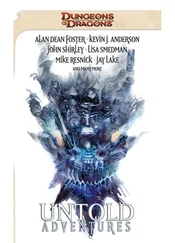David ed. - Face Off (2014) Anthology
Здесь есть возможность читать онлайн «David ed. - Face Off (2014) Anthology» весь текст электронной книги совершенно бесплатно (целиком полную версию без сокращений). В некоторых случаях можно слушать аудио, скачать через торрент в формате fb2 и присутствует краткое содержание. Год выпуска: 2014, ISBN: 2014, Издательство: Simon & Schuster, Жанр: Старинная литература, на английском языке. Описание произведения, (предисловие) а так же отзывы посетителей доступны на портале библиотеки ЛибКат.
- Название:Face Off (2014) Anthology
- Автор:
- Издательство:Simon & Schuster
- Жанр:
- Год:2014
- ISBN:9781476762067
- Рейтинг книги:4 / 5. Голосов: 1
-
Избранное:Добавить в избранное
- Отзывы:
-
Ваша оценка:
- 80
- 1
- 2
- 3
- 4
- 5
Face Off (2014) Anthology: краткое содержание, описание и аннотация
Предлагаем к чтению аннотацию, описание, краткое содержание или предисловие (зависит от того, что написал сам автор книги «Face Off (2014) Anthology»). Если вы не нашли необходимую информацию о книге — напишите в комментариях, мы постараемся отыскать её.
Face Off (2014) Anthology — читать онлайн бесплатно полную книгу (весь текст) целиком
Ниже представлен текст книги, разбитый по страницам. Система сохранения места последней прочитанной страницы, позволяет с удобством читать онлайн бесплатно книгу «Face Off (2014) Anthology», без необходимости каждый раз заново искать на чём Вы остановились. Поставьте закладку, и сможете в любой момент перейти на страницу, на которой закончили чтение.
Интервал:
Закладка:
“Strip off your clothes and get back in your gown,” he said.
Meanwhile, another orderly was speaking on a walkie-talkie, and Pendergast could hear him assuring someone that all was under control. The siren stopped and silence descended once again.
“I said, strip.”
Pendergast turned his back on the orderly, facing the locker, but made no move to take off his clothes. A moment passed and then the lead orderly stepped forward and grabbed him by the shoulder, pulling him around.
“I said—”
He fell silent as the barrel of a Smith & Wesson .38—removed from one of the disabled orderlies—was pressed against his head.
“All the radios on the floor,” Pendergast said in a calm, firm voice. “Then the weapons. And all your keys.”
Unnerved at the sight of a gun in a patient’s hand, the orderlies quickly complied, the radios and pistols piling up on the Persian carpet. Pendergast, still covering the head orderly, sorted through the pile, pulling out one of the radios. He removed the batteries from the others and ejected the rounds from the revolvers, stuffing batteries and bullets into the pocket of his jacket. Sorting through the keys, he found a master, stuck it into the keyhole of his room door, and snapped it off. He turned the working radio over in his hands, found the panic button, and pressed it. The alarm shrieked back to life.
“Elopement!” he cried into the radio. “Room 113! He’s got a gun! He went out the window. He’s running toward the woods!” Then he turned off the radio, plucked out its batteries in turn, and tossed it on the floor.
“Good evening, gentlemen.” He nodded at them gravely, then unlatched the window again, and leaped out into the night.
As he pressed himself against the dark side of the mansion, the lawn and grounds suddenly blazed with floodlights. He could hear shouts over the sound of the alarms. Moving alongside the edge of the building, keeping behind the shrubbery, he worked his way along the bulk of the great mansion turned insane asylum. As he had hoped, security officers and orderlies were running across the lawn, flashlight beams dancing about, all operating on the assumption he had fled into the woods.
Instead, Pendergast remained against the building, an almost invisible shadow, moving slowly and carefully. In a few minutes he had worked his way around to the front. Here, he stopped to reconnoiter. A sweeping driveway curved through a vast lawn to a porte cochere at the building’s entrance, tastefully planted with arborvitae. Flitting across the graveled drive, Pendergast secreted himself in the dense shrubbery beside the porte cochere.
It took just under five minutes for a late-model Lexus to come tearing down the driveway, scattering gravel, and slow to a stop under the porte cochere.
Excellent. Most excellent.
As the door was flung open, Pendergast dashed forward and rammed the driver—it was, as he’d expected, Dr. Augustine—back into the automobile, forcing him into his seat. Keeping the doctor covered with the gun, he quickly slipped into the passenger’s seat.
“Do keep driving,” he said as he closed the door.
The car continued down the driveway and back out toward what was evidently a manned guardhouse and gate. Pendergast slid off the seat and crouched under the dashboard.
“Tell them you forgot something and will be right back. Deviate from the script and you will be shot.”
The doctor complied. The gate opened. Pendergast rose back onto the seat as the vehicle accelerated.
“Turn right.”
The car turned right onto a lonely country road.
Pendergast turned on the vehicle’s GPS and studied it briefly. “Ah. I see we’re nowhere near Saranac Lake, but quite a lot closer to the Canadian border.” He looked over at Dr. Augustine and removed the cell phone from his coat pocket. Keeping his eye on the GPS, he gave the doctor a series of directions. Half an hour later, the car was proceeding down a dirt track, which dead-ended at a lonely pond.
“Stop here.”
The doctor stopped. His lips were set in a thin line, and he was white-faced.
“Dr. Augustine, do you realize the consequences of kidnapping a federal agent? I could kill you right now and get a medal for it. Unless, of course, I’m as crazy as you claim, in which case I’ll be locked up. But either way, my dear doctor, you will be dead.”
No answer.
“And I will kill you. I want to kill you. The only thing that will stop me is a full, immediate, and complete explanation of this setup.”
“What makes you think this is a setup?” came the doctor’s quavering voice. “That’s your delusion talking.”
“Because I knew how to pick a lock. I took this revolver away from an orderly as easily as taking candy from a baby.”
“Of course you did. That’s your standard Special Forces training.”
“I’m too strong to have been locked in a mental hospital for six months. I bent the bars in my window.”
“For God’s sake, you spent half your time working out in our gym! Don’t you remember?”
A silence. Then Pendergast said: “It was a masterful job. You almost had me believing you. But I grew suspicious again when Helen did not rise to my comment about the moon—sharing the full moonrise was always our private signal. That put me on my guard. And then I knew for certain it was a setup when Helen took my hands in hers.”
“And how in God’s name did you know that?”
“Because she still had her left hand. There’s one memory in my life that’s so powerful that I know it can’t be a delusion. It occurred during the African hunting expedition in which Helen was attacked by a lion. My memory of the moment when I found her severed hand, still bearing its wedding ring, is seared too deep in my memory to be anything but real.”
The doctor was silent. The moon shone off the small lake. A loon called from some distant shore.
Pendergast cocked the Smith & Wesson. “I’ve endured enough prevarication. Tell me the truth. One more lie and you’re dead.”
“How will you know it’s a lie?” asked the doctor quietly.
“It becomes a lie when I don’t believe it.”
“I see. And what’s in it for me if I cooperate?”
“You’ll be permitted to live.”
The doctor took a deep, shuddering breath. “Let’s start with my name. It’s not Augustine. It’s Grundman. Dr. William Grundman.”
“Keep going.”
“For the past decade, I’ve been experimenting with memory neurons. I discovered a gene known as Npas4.”
“Which is?”
“It controls the neurons of your memory. Memory, you see, is physical. It’s stored through a combination of neurochemicals and trapped electrical potentials. By controlling Npas4, I learned how to locate the neural networks that store specific memories. I learned how to manipulate those neurons. I learned how to erase them. Not delete—that would cause brain damage. But erase. A far more delicate operation.”
He paused. “Do you believe me so far?”
“You’re still alive, aren’t you?”
“I discovered that this technique could be very lucrative. I started a clinic—under the cover of the Stony Mountain Sanatorium. While the sanatorium is visible, naturally, what goes on there is quite underground.”
“Continue.”
“People come to my underground clinic to be rid of memories they no longer want. I’m sure you can imagine all sorts of situations in which that would be desirable. I make those memories go away for a price. And for a time, that was satisfactory. But then my research led me to a discovery that was even more extraordinary. I theorized that I could do more than erase memories. I could also create them. I could program new memories. Imagine the potential market for that: for the right price, you could be given the memory of having spent a weekend at Cap d’Antibes with the Hollywood starlet of your choice, or of scaling Everest with Mallory, or of conducting the New York Philharmonic in Mahler’s Ninth.”
Читать дальшеИнтервал:
Закладка:
Похожие книги на «Face Off (2014) Anthology»
Представляем Вашему вниманию похожие книги на «Face Off (2014) Anthology» списком для выбора. Мы отобрали схожую по названию и смыслу литературу в надежде предоставить читателям больше вариантов отыскать новые, интересные, ещё непрочитанные произведения.
Обсуждение, отзывы о книге «Face Off (2014) Anthology» и просто собственные мнения читателей. Оставьте ваши комментарии, напишите, что Вы думаете о произведении, его смысле или главных героях. Укажите что конкретно понравилось, а что нет, и почему Вы так считаете.












